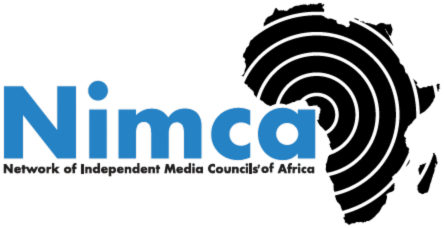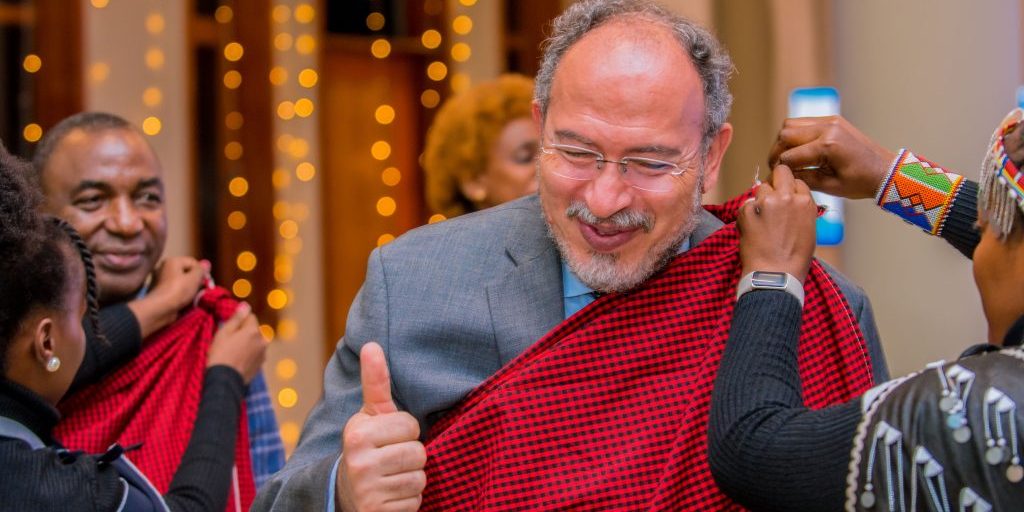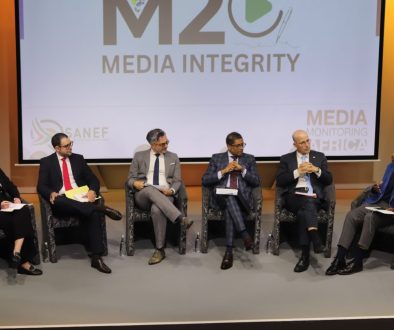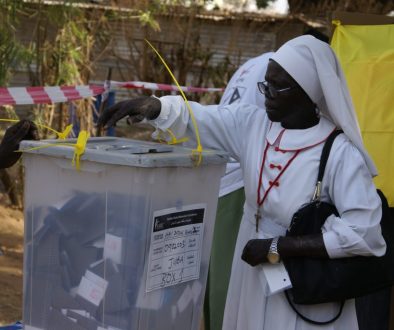‘Championed by Africans, vision of free press more relevant than ever’
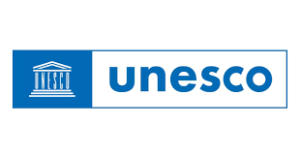 Keynote speech for the Pan-African Media Councils Summit and the inaugural Annual General Meeting of the Network of Independent Media Councils in Africa
Keynote speech for the Pan-African Media Councils Summit and the inaugural Annual General Meeting of the Network of Independent Media Councils in Africa
Tawfik Jelassi, UNESCO Assistant Director General for Communication and Information
Excellencies, Honorable Ministers,
Distinguished Guests, Esteemed Participants,
I am pleased to be here to address the second Pan-African Media Councils’ Summit, and to extend UNESCO greetings to all of you.
I would like to thank the Government of the United Republic of Tanzania for its hospitality, and the Network of Independent Media Councils of Africa (NIMCA) for convening this important gathering.
I am also pleased to recognise the presence of the Special Rapporteur on Freedom of Expression and Access to Information in Africa, Honorary Ourveena Geereesha Topsy-Sonoo, whose work is essential in defending these fundamental rights.
We meet at a pivotal time. Across the globe, trust in media is being tested. Technology is transforming how information is produced and disseminated, and freedom of expression and access to information face growing pressure
In this context, we must remember the words that laid the foundation for the media landscape in Africa and beyond, more than 30 years ago in Namibia, through the Windhoek+30 Declaration: ‘The establishment, maintenance and fostering of an independent, pluralistic and free press is essential to the development and sustainability of democracy in a nation.’
This vision – born in Africa and championed by Africans – remains more relevant than ever. Over the past three decades, countries across the continent have made significant progress in nurturing a vibrant media sector, driven by local efforts.
Much of this progress has been made possible by the creation of enabling environments: legal and policy frameworks that allow for independent regulators, support media self-regulation, and promote professional, ethical journalism. These foundations enabled journalism to thrive and gain people’s trust, even in the face of persistent and emerging challenges.
This Summit offers a critical opportunity to reaffirm a shared commitment: that journalism excellence is a cornerstone of democracy, human rights, and development in Africa
The central challenge before us is how to ensure that media and communication regulation keeps pace with rapid technological changes, while safeguarding information integrity, freedom of expression, and universal access to reliable information.
In the face of accelerating developments -Artificial Intelligence, disinformation, financial precarity – we must reflect on what forms of regulation are most effective, while remaining firmly grounded in international human rights’ standards.
When regulation is shaped by democratic principles, it can serve as an enabling force: protecting journalists, elevating standards, enhancing public trust and ensuring media freedom.
UNESCO’s Guidelines for the Governance of Digital Platforms, released in November 2023, offer a model for this approach. These Guidelines advocate for a human rights-based multistakeholder framework to ensure that digital platforms operate transparently, remain accountable and respect international freedom of expression norms.
We also recognise that effective regulation must be inclusive by design. It must embed gender equality, uphold disability rights and protect the voices of those most often marginalised. In Madagascar, for example, UNESCO supported the institutionalisation of anti-harassment policies across 40 radio stations.
Building on this, UNESCO and OHCHR are developing a Human Rights Impact Assessment Guidance for Digital Platforms, helping companies conduct risk assessments that are not only gender-sensitive but inter-sectional, supporting women journalists and human rights defenders to navigate and mitigate online threats.
As part of our broader commitment to foster an ‘Internet for trust’, UNESCO is working in close partnership with Hon. Commissioner Topsy-Sonoo to advance Resolution 630, adopted by the African Commission on Human and Peoples’ Rights in March 2025.
This Resolution tasks the Special Rapporteur with developing Guidelines to help States oversee technology companies’ responsibilities in upholding information integrity -including through independent fact-checking.
This work will integrate African perspectives into broader digital governance efforts, ensuring they reflect regional needs and realities
Another key pillar is journalism education. Excellence in journalism begins in the classroom. Through the flagship project, Promoting Excellence in Journalism Education in Africa, supported by the Google News Initiative and led by UNESCO’s International Program for the Development of Communication (IPDC) in partnership with the Wits Centre for Journalism and Rhodes University, we are working with journalism schools across 37 countries to co-define what excellence means in the African context.
Ten universities have already launched initiatives focused on gender-sensitive reporting, Indigenous representation, environmental journalism, data literacy and media viability, ensuring that future journalists are equipped to navigate both local challenges and global trends.
At the heart of this work are national and regional media councils. When they are independent and accountable, these institutions serve as guardians of professionalism. They defend ethical journalism, address public complaints, support journalists’ safety and encourage self-regulation over State control.
These institutions must be protected, funded and respected as democratic actors. No single institution can meet these challenges alone. Cross-border collaboration and regional standards are essential
Through regional initiatives – from access to information reform to conflict-sensitive journalism and gender-based violence prevention – UNESCO has helped foster connections between media actors, governments and civil society across Africa.
Looking ahead, regulation must not merely respond to change; it must anticipate it. The transformative impact of AI, algorithmic governance and data-driven content distribution require forward-looking, human rights-based approaches. UNESCO is facilitating multi-stakeholder dialogues across Africa and beyond, to ensure that innovation does not outpace our ethical and normative frameworks.
As the UN’s specialised agency for freedom of expression, UNESCO stands firmly behind African-led reforms that advance media freedom, pluralism, and sustainability. We are not just observers or advisors. We are committed partners.
The African Union’s Agenda 2063, the United Nations Pact for the Future and the Global Digital Compact all provide a roadmap. Let’s align our efforts, amplify African voices, and act in solidarity
As we look ahead, let’s reaffirm our commitment to these principles and to ensuring that Africa’s media landscape remains a beacon of democracy, dialogue, and sustainable development for generations to come. Your dedication as regulators, media councils, and partners is essential to building resilient information ecosystems, promoting accountability, and defending human rights.
UNESCO stands ready to deepen this collaboration, support innovation, and ensure that journalistic excellence continues to serve as a pillar of freedom and progress across the continent.
Thank you.
PICTURE: Dr Tawfik Jelassi joyfully receives a shuka, with all its rich history, at the Summit in Arusha. Ernest Sangura of the Media Council of Tanzania can be seen in the background
